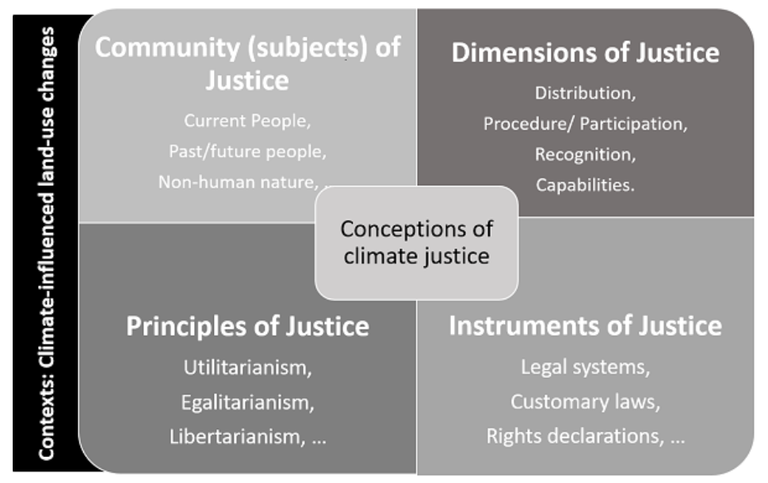How we're going about it
Building a project that's multi-faceted and multilingual...
Interdisciplinary and transdisciplinary
Just Scapes uses interdisciplinary and transdisciplinary methods, combining novel humanities and social-science approaches and environmental expertise from geography, psychology, political science, futures studies and creative writing.
Empirical environmental justice analysis
Just Scapes takes an 'empirical environmental justice analytical framework'. This is an approach that has developed by UEA’s Global Environmental Justice research group (Sikor et al. 2014, Martin et al. 2016).
A key strategy of this approach is to break justice claims down into core components that can be examined using social scientific research methods. And, for the first time, we have also used creative arts methods as part of Just Scapes.

Four strands of research over three years
We have interacted with the people living and working in our case-study sites in four different ways:
- 1. semi-structured interviews with stakeholders on each site
- 2. creative-writing workshops with a smaller group of stakeholders from each site
- 3. a cross-cultural survey, run across all three sites
- 4. 'Just Transformation Labs' – transdisciplinary spaces for co-learning/co-producing shared visions for each landscape.
Where we've got to so far
Click here for a more detailed breakdown of what we've been doing, when, over the four years of the project.
And to find out what we've found out so far, visit our 'Findings' page, or read our "more or less halfway" report
